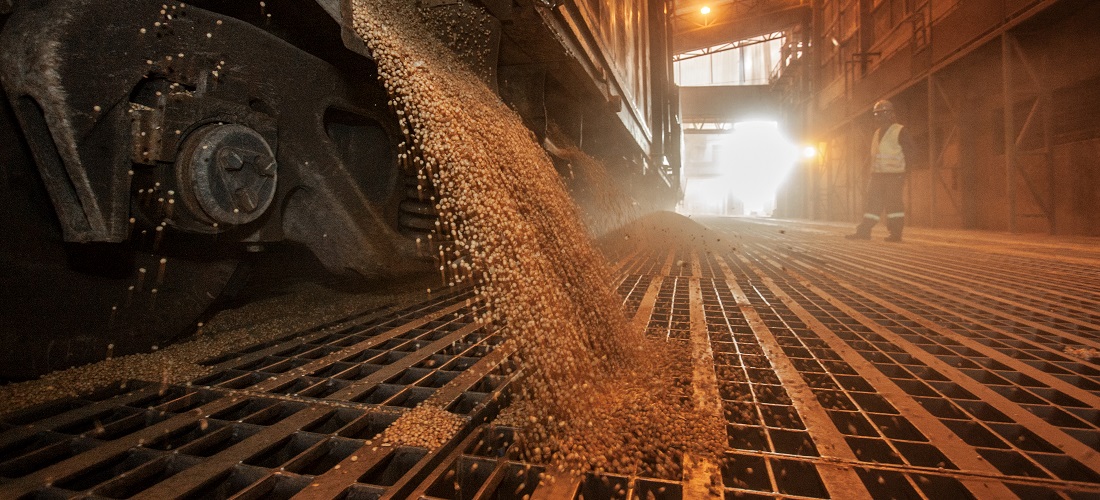
WTO: global export restrictions on food products ease
Jun, 05, 2023 Posted by Gabriel MalheirosWeek 202323
Following Russia’s invasion of Ukraine in February last year, numerous countries implemented over 100 restrictions on food and fertilizer exports. While the war persists, these restriction measures have now lessened to 63, accompanied by countries adopting 80 trade facilitation measures.
However, these developments weigh heavily on less developed nations, mainly due to surging food and energy prices. Ngozi Okonjo-Oweala, Director-General of the World Trade Organization, emphasized that these countries are unjustly suffering from limited access to food and fertilizer, as well as high prices resulting from exchange rate fluctuations and currency depreciation. She conveyed these sentiments during a virtual debate hosted by the organization.
The discussion centered around the “Black Sea Grain Initiative,” which enabled the resumption of food and fertilizer exports, including ammonia, from three major Ukrainian ports on the Black Sea. It also granted Russian food and fertilizer products access to global markets.
According to Abdullah Abdul Samad Dashti, the UN coordinator for this initiative, 30.5 million tonnes of grain have already been exported to 45 countries, prioritizing nations such as Afghanistan, Ethiopia, Kenya, Somalia, and Yemen.
Alzbeta Klein, CEO and General Manager of the International Fertilizer Association (IFA) acknowledged improvements in fertilizer exports. However, she raised concerns about access to nitrogen and phosphates, particularly in sub-Saharan Africa, mainly due to the devaluation of local currencies.
Arnaud Petit, Executive Director of the International Grains Council, analyzed commodity trends. Rice stocks in Asia are declining but still remain sufficient to meet market demands, particularly in Africa. While prices are increasing, there is no significant risk in this segment.
Regarding soybeans, Brazil expects a bountiful harvest, and the US also anticipates a profitable crop. Therefore, the soybean market is not currently facing any issues.
As for corn, production is expected to rise by 6%. Persistent demand, driven by meat consumption in Asia and increased demand for feed, presents an opportunity to build up stocks, especially in the US.
However, Petit cautioned that the overall grain situation may need to be reassessed due to the war in Ukraine. The Black Sea region accounts for over 70 million tonnes of grain annually, making it a crucial factor in balancing global grain markets. Petit emphasized that no other area in the world produces such a substantial volume.
The crisis sparked by Russia’s invasion of Ukraine has brought food security into sharp focus, according to the Director-General of the WTO. She advocates for open trade instead of restrictions, enabling countries to manage volatility in food and energy prices better. Additionally, she proposes advancing agricultural discussions from a new perspective to bolster global food supplies.
Countries like India, Indonesia, and others are inclined towards authorizing more subsidies and adopting stricter import regulations, further shaping the outcomes of these discussions.
Source: Valor Econômico
To read the original news report, see: https://valor.globo.com/opiniao/assis-moreira/coluna/restricoes-a-exportacao-de-alimentos-diminuem-mas-a-fatura-continua-alta.ghtml
-
Economy
Apr, 17, 2024
0
Global Trade Outlook for 2024: A Projection Amidst Rising Tensions
-
Grains
Aug, 09, 2024
0
Anec estimates Brazilian corn exports at 6.29 million tons in August
-
Meat
Feb, 01, 2023
0
Beef: Argentina’s exports generate US$ 3,431 billion in 2022
-
Fish
Apr, 03, 2019
0
Argentina authorizes early opening of northern squid sector

